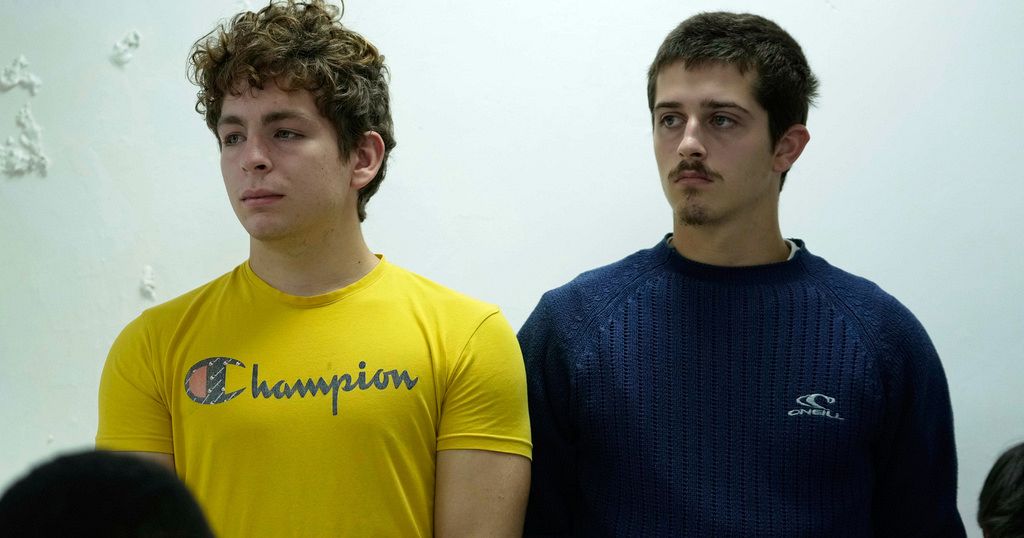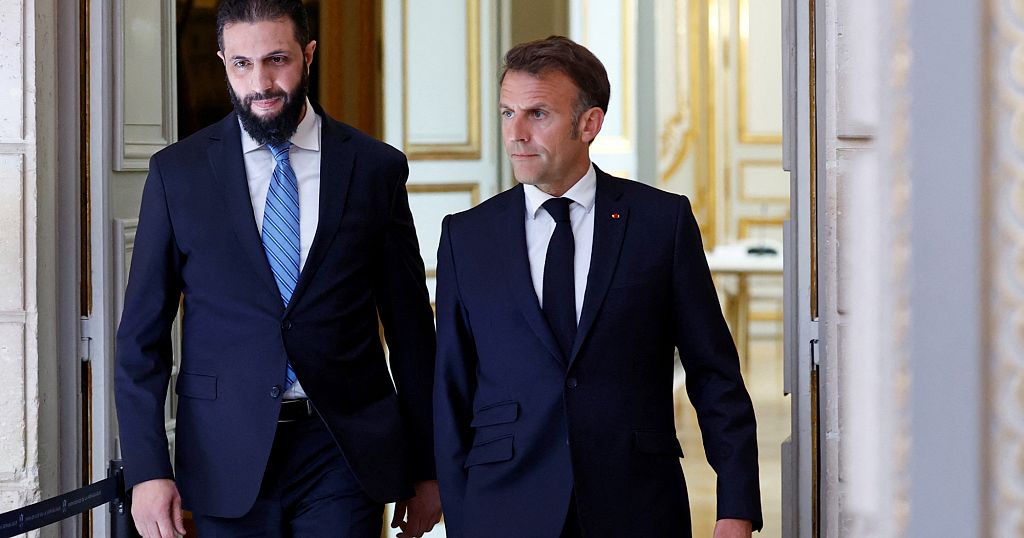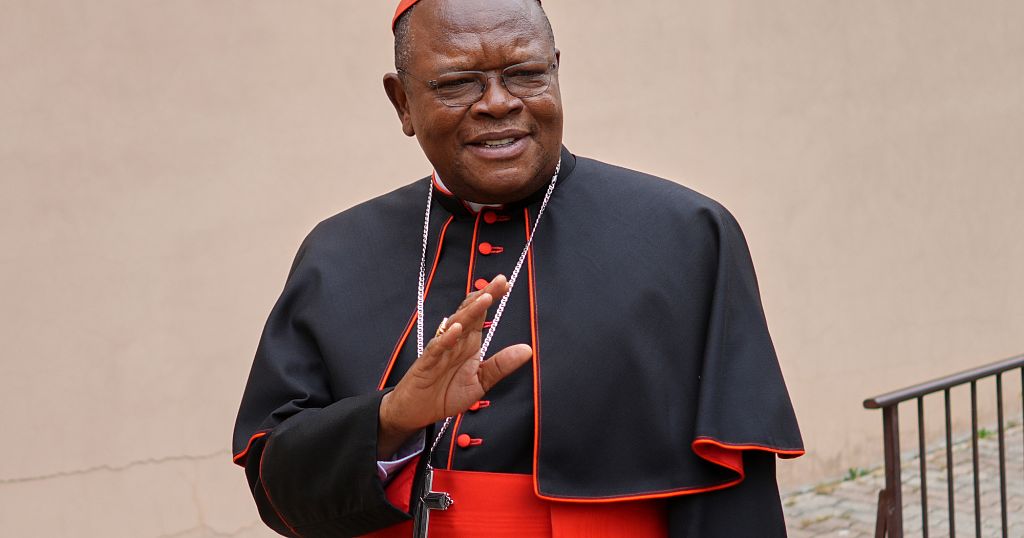Africa
Kenya sentences four men for trying to smuggle ants out of the country

A court in Kenya has sentenced four men to one year in prison or to pay a fine of $7,700 each, for trying to smuggle thousands of live queen ants out of the country.
Authorities said the giant insects were destined for collectors in Europe and Asia in what is seen as an emerging trend of trafficking lesser-known wildlife species.
Two of the men are Belgian teenagers who told the court they were collecting them as a hobby and did not think it was illegal.
Lornoy David and Seppe Lodewijckx, both 19-years-old, were arrested on 5 April with 5,000 ants in their possession at a guest house in Nakuru county, which is home to various national parks.
Magistrate Njeri Thuku said in her ruling on Wednesday that despite them telling the court they had been naïve and that it was a hobby, the particular species of ants they collected is valuable and they had thousands of them, not just a few.
The Kenya Wildlife Service (KWS) said the species they held included a distinctive, large and red-coloured harvester ant native to East Africa.
The teenagers’ lawyer, Halima Nyakinyua, described the sentencing as “fair” and said her clients would not appeal.
“When the statutes prescribe a specific minimum amount, the court cannot go lower than that. So, even if we went to the court of appeal, the court is not going to revise that,” she said.
The illegal export of the ants “not only undermines Kenya’s sovereign rights over its biodiversity but also deprives local communities and research institutions of potential ecological and economic benefits,” KWS said in a statement.
In a separate but related case, a Vietnamese national and a Kenyan were given the same sentence after they were found with 400 ants.
Duh Hung Nguyen told the court that he was sent to pick up the ants, while Kenyan Dennis Ng’ang’a, said he didn’t know it was illegal because ants are sold and eaten locally.
Africa
Syria holds indirect talks with Israel to prevent escalation

Syria’s interim President Ahmad al-Sharaa said Wednesday that his country is holding indirect talks with Israel to prevent recent hostilities from getting out of control.
He spoke on his first visit to Europe since taking office in January, and as he seeks to broaden ties to Western countries.
Israel carried out a series of airstrikes on parts of Syria last week, saying it aims to protect the country’s Druze minority from coming under attack by pro-government gunmen.
Speaking to reporters in Paris, al-Sharaa said, ″Regarding negotiations with Israel, there are indirect talks through mediators to calm down the situation so that they don’t get out of control.″
He did not say who the mediators are.
There was no immediate public comment from Israel.
Israel has its own Druze community and officials have said they would protect the Druze of Syria and warned Islamic militant groups from entering predominantly Druze areas.
Al-Sharaa met earlier Wednesday with French President Emmanuel Macron, who said he would push the EU and U.S. to lift sanctions on Syria to boost its economy.
Macron also called for continued U.S. and international military presence in Syria to fight terrorist groups threatening security in the Mideast and Europe.
Al-Sharaa took power after his Islamist group, Hayat Tahrir al-Sham (HTS), led an offensive that toppled former President Bashar Assad in December.
Assad, a member of Syria’s Alawite minority, ruled for more than two decades.
The Syrian leader’s visit to Paris comes a week after clashes between forces loyal to al-Sharaa and fighters from the minority Druze sect that left nearly 100 people dead.
This followed earlier violence in Syria’s coastal region between Sunni gunmen and members of the minority Alawite sect, which left more than 1,000 people dead, many of them Alawite civilians killed in revenge attacks.
Religious minorities in Syria, including Alawites, Christians and Druze, fear persecution under the predominantly Sunni Muslim-led government.
Al-Sharaa has repeatedly pledged that all Syrians will be treated equally regardless of religion or ethnicity.
The 14-year conflict has killed nearly half a million people and displaced millions.
Syria’s infrastructure lies in ruins, and international sanctions remain a major barrier to reconstruction.
The visit to Paris is being closely watched as a potential test of Europe’s willingness to engage with Syria’s new leadership.
The European Union has begun easing sanctions, suspending measures targeting Syria’s oil, gas and electricity sectors, as well as transport, including aviation, and banking restrictions.
The EU said that it would monitor developments in Syria to see whether other economic sanctions could be lifted, but its 27 member states are divided on whether to go further.
Africa
In Congo, supporters of Cardinal Ambongo hope he will become pope

Viewers in the Democratic Republic of Congo gathered around their TV in Kinshasa to cheer for the possibility of an African pope.
Patience Mudinda and her family were watching television in their small living room as the television showed the beginning of the process of electing a new pope.
This modest Congolese Catholic family has only one name in mind: their compatriot, 65-year-old Cardinal Fridolin Ambongo Besungu.
Everyone here wants Cardinal Ambongo to be the future pope.
Mudinda says she will be “overwhelmed with joy” if Cardinal Fridolin Ambongo is elected.
Meanwhile, Mudinda’s son concentrates on watching the news on television.
In Kinshasa, those close to Cardinal Ambongo are more measured in their comments on this Vatican election, hoping that the religious spirit will prevail over all other considerations in the choice of the future Pope, said Abbot Marcel Ndjondjo, a close colleague of the cardinal Ambongo.
Africa
Kenya expert warns of ecological disaster due to insect trafficking

Entomologist Shadrack Muya, a senior lecturer at Kenya’s Jomo Kenyatta University of Agriculture and Technology, said that ants are important for aerating soils, enhancing soil fertility and dispersing seeds. He added that their removal from their environment disrupts the ecosystem.
Muya warned against taking ants from their natural habitats, saying they were unlikely to survive if not supported to adapt to their new environment.
“Survival in the new environment will depend on the interventions that are likely to take place. Where it has been taken away from, there is a likelihood of an ecological disaster that may happen due to that disturbance,” he said.
Two Belgian teenagers found with 5,000 ants in Kenya were given a choice of paying a fine of $7,700 or serving 12 months in prison — the minimum penalty for the offense — for violating wildlife conservation laws.
Authorities said the ants were destined for European and Asian markets in an emerging trend of trafficking lesser-known wildlife species.
Belgian nationals Lornoy David and Seppe Lodewijckx, both 19 years old, were arrested on April 5 with 5,000 ants at a guest house in Nakuru county, which is home to various national parks.
They were charged on April 15.
Magistrate Njeri Thuku, sitting at the court in Kenya’s main airport on Wednesday, said in her ruling that despite the teenagers telling the court they were naïve and collecting the ants as a hobby, the particular species of ants they collected is valuable and they had thousands of them — not just a few.
The Kenya Wildlife Service (KWS) had said the teenagers were involved in trafficking the ants to markets in Europe and Asia, and that the species included messor cephalotes, a distinctive, large and red-colored harvester ant native to East Africa.
The teenagers’ lawyer, Halima Nyakinyua, described the sentencing as “fair” and said her clients would not appeal.
The illegal export of the ants “not only undermines Kenya’s sovereign rights over its biodiversity but also deprives local communities and research institutions of potential ecological and economic benefits,” KWS said in a statement.
In a separate but related case, two other men charged after they were found with 400 ants were also fined $7,700 each with an option of serving 12 months in prison.
Duh Hung Nguyen, a Vietnamese national, told the court that he was sent to pick up the ants and arrived at Kenya’s main airport where he met his contact person, Dennis Ng’ang’a, and together they travelled to meet the locals who sell the ants.
Ng’ang’a, who is from Kenya, had said he didn’t know it was illegal because ants are sold and eaten locally.
Magistrate Thuku during the ruling described Ng’ang’a and Nguyen’s meet-up as “part of an elaborate scheme.”
-

 Europe2 days ago
Europe2 days agoTrump’s Oval Office meeting with Carney didn’t reach Zelensky-level tension. But it wasn’t all neighborliness
-

 Asia2 days ago
Asia2 days agoIndia launches military operation against Pakistan in major escalation
-

 Asia2 days ago
Asia2 days agoLive updates: India launches military operation against Pakistan
-

 Middle East2 days ago
Middle East2 days agoPalestine and the decline of the US empire | Israel-Palestine conflict
-

 Middle East2 days ago
Middle East2 days agoTrump says bombing of Yemen to stop as Oman confirms US-Houthi ceasefire | Israel-Palestine conflict News
-

 Asia2 days ago
Asia2 days ago‘Operation Sindoor:’ Why India attacked Pakistan and conflict has escalated dramatically
-
Sports2 days ago
Kentucky Derby winner Sovereignty will not race in the Preakness
-

 Lifestyle2 days ago
Lifestyle2 days agoThe Met Gala is over, but dandyism isn’t. Here’s how to dress like a dandy in everyday life




